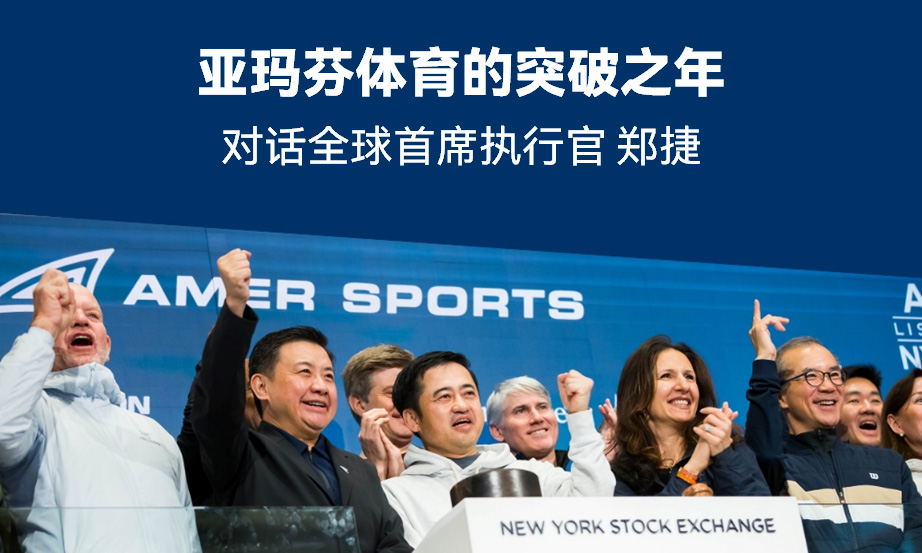
中层管理人员善于将高层领导者的梦想变成现实。但在人工智能项目方面,中层管理人员却很难找到将高层的宏伟计划和可行方案连接起来的桥梁。
德勤咨询(Deloitte Consulting)的领导人和全球生成式AI负责人尼廷·米塔尔表示:“愿景与实践之间出现了脱节。这种情况在我们的客户和我们采访的许多企业当中非常普遍。”
米塔尔表示,公司面临的挑战在于坚持愿景的同时,负责并了解公司在实践中存在的限制,如数据、技术和员工的技能等。
近日,在《财富》杂志AI头脑风暴大会的专题讨论会上,米塔尔和其他多家公司的高管讨论了“生产力悖论”,他们认为如果AI项目的规划和执行不够缜密,“生产力悖论”可能让AI的潜在好处大打折扣。据世界经济论坛(World Economic Forum)预测,到2035年,AI可能使公司的效率提高40%,这让人们兴奋不已,并且充满了期待,但这种期待可能很容易就会变成失望。
Upwork CEO海登·布朗在谈话时引用了一项调查的结果,这项调查体现了高预期与现实挑战之间的差距:一家研究机构调查了美国1,400家公司的AI策略,调查结果显示,73%的公司高管对其AI策略充满信心,但只有53%的管理者和副总裁同样有信心。
布朗说道:”负责技术执行的管理者和副总裁,不仅对如何执行感到困惑,他们实际上非常担心AI带来的风险和恐慌。他们过多地谈论对AI技术的担忧和如何执行该技术,以及他们的工作或团队的工作是否会被取代。”
这种担忧并非空穴来风。在两天会议期间,与会者和演讲嘉宾多次就AI技术对劳动力和社会的影响表示担忧。Ritual.work创始人兼CEO阿迪夫·拉菲克在台上接受采访时表示,公司需要为AI时代更好地培训员工。拉菲克表示:“我们根本没有做好准备。”
Block TBD首席运营官艾米丽·赵,与德勤的米塔尔和Upwork的布朗一起参加了专题讨论。她讲述了这些问题对于她所在公司的影响。她表示,从高管到普通员工,公司内部对于AI的担忧相对平衡。Block TBD隶属于杰克·多罗西的金融技术公司Block。Block TBD考虑的关键原则是,在采用新技术时,尤其是处理敏感个人信息时,需要慎重策划,并做到平衡。
她说道:“现在,我们看到人人都将掌握这些工具。在金融服务业,你刚刚发布一款产品,就会有诈骗分子试图从各种各样的角度进行欺诈和寻找漏洞。”
虽然这些风险不容低估,但赛富时(Salesforce)首席道德与人道使用官宝拉·古德曼介绍了公司对AI的兴奋和积极态度,公司强烈期待在各个部门试验和整合AI技术。她认为,这些风险能带来创新的机会,培养信任,这符合公司的目标。
布朗表示:“人们很想试用AI技术,他们会问我们多快可以开始试验?但从外部来看,我认为我并没有看到脱节的现象,我看到的是兴奋和一种风险意识。这在我看来是一种非常乐观的态度,因为AI并不新鲜,我们讨论的风险也不新鲜。人们在很久以前就开始寻找应对这些风险的解决方案。”(财富中文网)
译者:刘进龙
审校:汪皓
中层管理人员善于将高层领导者的梦想变成现实。但在人工智能项目方面,中层管理人员却很难找到将高层的宏伟计划和可行方案连接起来的桥梁。
德勤咨询(Deloitte Consulting)的领导人和全球生成式AI负责人尼廷·米塔尔表示:“愿景与实践之间出现了脱节。这种情况在我们的客户和我们采访的许多企业当中非常普遍。”
米塔尔表示,公司面临的挑战在于坚持愿景的同时,负责并了解公司在实践中存在的限制,如数据、技术和员工的技能等。
近日,在《财富》杂志AI头脑风暴大会的专题讨论会上,米塔尔和其他多家公司的高管讨论了“生产力悖论”,他们认为如果AI项目的规划和执行不够缜密,“生产力悖论”可能让AI的潜在好处大打折扣。据世界经济论坛(World Economic Forum)预测,到2035年,AI可能使公司的效率提高40%,这让人们兴奋不已,并且充满了期待,但这种期待可能很容易就会变成失望。
Upwork CEO海登·布朗在谈话时引用了一项调查的结果,这项调查体现了高预期与现实挑战之间的差距:一家研究机构调查了美国1,400家公司的AI策略,调查结果显示,73%的公司高管对其AI策略充满信心,但只有53%的管理者和副总裁同样有信心。
布朗说道:”负责技术执行的管理者和副总裁,不仅对如何执行感到困惑,他们实际上非常担心AI带来的风险和恐慌。他们过多地谈论对AI技术的担忧和如何执行该技术,以及他们的工作或团队的工作是否会被取代。”
这种担忧并非空穴来风。在两天会议期间,与会者和演讲嘉宾多次就AI技术对劳动力和社会的影响表示担忧。Ritual.work创始人兼CEO阿迪夫·拉菲克在台上接受采访时表示,公司需要为AI时代更好地培训员工。拉菲克表示:“我们根本没有做好准备。”
Block TBD首席运营官艾米丽·赵,与德勤的米塔尔和Upwork的布朗一起参加了专题讨论。她讲述了这些问题对于她所在公司的影响。她表示,从高管到普通员工,公司内部对于AI的担忧相对平衡。Block TBD隶属于杰克·多罗西的金融技术公司Block。Block TBD考虑的关键原则是,在采用新技术时,尤其是处理敏感个人信息时,需要慎重策划,并做到平衡。
她说道:“现在,我们看到人人都将掌握这些工具。在金融服务业,你刚刚发布一款产品,就会有诈骗分子试图从各种各样的角度进行欺诈和寻找漏洞。”
虽然这些风险不容低估,但赛富时(Salesforce)首席道德与人道使用官宝拉·古德曼介绍了公司对AI的兴奋和积极态度,公司强烈期待在各个部门试验和整合AI技术。她认为,这些风险能带来创新的机会,培养信任,这符合公司的目标。
布朗表示:“人们很想试用AI技术,他们会问我们多快可以开始试验?但从外部来看,我认为我并没有看到脱节的现象,我看到的是兴奋和一种风险意识。这在我看来是一种非常乐观的态度,因为AI并不新鲜,我们讨论的风险也不新鲜。人们在很久以前就开始寻找应对这些风险的解决方案。”(财富中文网)
译者:刘进龙
审校:汪皓
Middle managers are accustomed to translating the dreams of senior leadership into reality. When it comes to AI projects however, the bridge connecting the grand plans of the C-suite to the realm of the doable can be tricky to find for those tasked with crossing it.
“The disconnect is between vision and practicality,” says Deloitte Consulting’s Principal and Global Generative AI Leader Nitin Mittal. “This is somewhat ubiquitous in our own client base and the many, many enterprises that we talk to.”
The challenge is to stay true to the vision while being responsible and understanding the practical constraints of the organization, like data, technology, and the skills of the workforce, Mittal added.
Speaking at a special session at Fortune‘s Brainstorm AI conference Tuesday, Mittal and executive at several other companies discussed the “productivity paradox” that can erode the promised benefits of AI if projects aren’t planned and executed thoughtfully. AI’s potential to make organizations 40% more efficient by 2035, as forecast by the World Economic Forum, has generated a lot of excitement and expectations that can all too easily turn into disappointment.
The gap between heady expectations and on-the-ground challenges is reflected in a survey that Upwork CEO Hayden Brown cited during the talk: A research institute surveyed 1,400 businesses in the U.S. about their AI strategies, and the findings showed that 73% of C suite executives are confident in their AI strategy, while only 53% of managers and VPs feel the same way.
“The managers and VPs implementing the technologies not only are confused about how, they’re actually very anchored on risk, and fear,” Brown said. “They were disproportionately speaking to concerns around that technology, and how it could be implemented, and whether their jobs or their teams jobs would be replaced.”
The fears aren’t unreasonable. Disquiet about the impact of AI technology on the workforce and on society were themes that were repeatedly brought up by attendees and speakers throughout the two-day conference. In an on-stage interview on Monday, Atif Rafiq, the founder and CEO of Ritual.work, said that businesses needed to do a better job of training workers for the AI age. “We’re woefully unprepared,” Rafiq said.
During Tuesday’s special panel with Deloitte’s Mittal and Upwork’s Brown, Emily Chiu, the chief operating officer of Block TBD, talked about how these issues were playing out at her firm. Chiu said that the level of concern over AI is relatively balanced across the organization, extending from the C-suite to the staff. The key consideration within Block TBD——a division of Jack Dorsey’s financial technology firm Block—is in the need for careful planning and balance when adopting new technologies, especially in handling sensitive personal information.
“What we see now is that these tools are going to be in the hands of everyone,” Chiu said. “And in financial services, the minute you launch a product, every scammer shows up with every angle to try to defraud you and to find loopholes.”
While these risk cannot be underestimated, Salesforce’s chief ethical and humane use officer Paula Goldman described a positive and excited attitude towards AI at the firm, with a strong desire to experiment and integrate the technology across all departments. For her, these risks present an opportunity for innovation, creating a sense of trust that aligns with the goals of enterprises.
“People want experiment, like how fast can we experiment?” Brown said. “But externally, you know, I think I’m actually not seeing a disconnect, I am actually seeing excitement and a sort of awareness of risk. And that, to me, is really optimistic, because AI is not new, the risks that we’re talking about are not new. And people have been working on solutions for this stuff for quite some time.”





